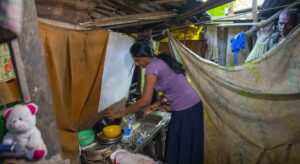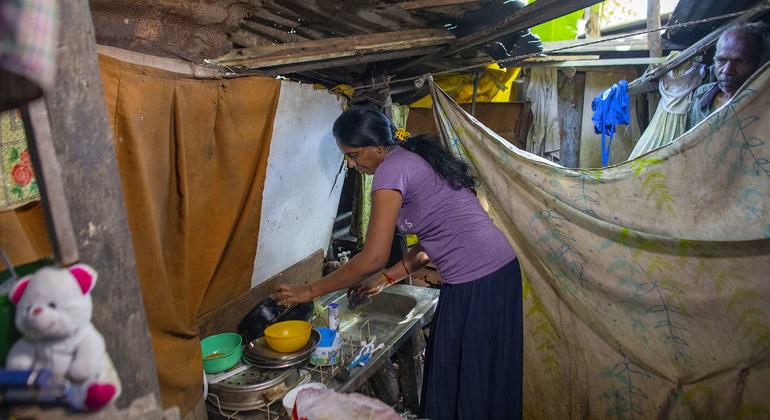UN ramps up humanitarian appeal for life-saving assistance to 3.4 million Sri Lankans

Amidst Sri Lanka’s worst economic crisis since independence, the UN on Tuesday revised its joint Humanitarian Needs and Priorities (HNP) Plan, appealing for more life-saving assistance to aid 3.4 million people. Since June, the UN team in Sri Lanka and NGOs have used the HNP to respond to the Government’s…
The post appeared first on .


Amidst Sri Lanka’s worst economic crisis since independence, the UN on Tuesday revised its joint Humanitarian Needs and Priorities (HNP) Plan, appealing for more life-saving assistance to aid 3.4 million people.
Since June, the UN team in Sri Lanka and NGOs have used the HNP to respond to the Government’s request for more support to alleviate the impact of the country’s debt and food crisis, and shortages of medicines.
Governments and donor agencies have helped the humanitarian community reach over one million of the country’s most vulnerable with cash, food, school meals, medicine, protection, and livelihood support.
“We are immensely appreciative of the solidarity the international community has shown with the people of Sri Lanka, including through their generous contributions to the HNP”, said UN Resident Coordinator in Sri Lanka, Hanaa Singer-Hamdy, adding that it must be sustained “if we are to insulate the most at-risk people from the impacts of the ongoing crisis”.
Plan to help
Aligned with appeals from other UN agencies, the HNP has raised $79 million for Sri Lanka through various countries and organizations (click for the full list).
The HNP revision, which extends the plan through 2022, requires $70 million in additional funds to reach a total of $149.7 million.
In response to the humanitarian community’s updated estimates on the number of people in need across all 25 of Sri Lanka’s districts, the extended appeal will improve nutrition for children, pregnant women, and breastfeeding mothers; secure safe drinking water; and protect vulnerable farming and fishing households.

‘Safeguarding lives’
Meanwhile, two consecutive seasons of poor harvests, foreign exchange shortages, and reduced household purchasing power have triggered a dramatic increase in food insecurity.
Between food inflation of 85.6 per cent in October and another meagre crop season forecast for 2023, many Sri Lankans are struggling.
Twenty-eight per cent of the population – or 6.3 million people – face moderate-to-severe acute food insecurity.
The UN official underscored the importance of strengthening local food production and delivery, saying that “at this point, safeguarding livelihoods is safeguarding lives in Sri Lanka”.
Appealing for aid
According to the World Bank’s 2022 Development Update, between 2021 and 2022, the national poverty rate rose from 13.1 per cent to 25.6 per cent.
The revised HNP complements existing emergency operations being carried out by the UN and partners.
The appeal targets immediate food assistance for 2.4 million vulnerable and food-insecure people as well as support, including fertilizers, for 1.5 million farmers.
The plan also seeks to provide nutrition support for 2.1 million people, including pregnant women and schoolchildren; safe drinking water for over 900,000 people; and essential medicines and healthcare, including sexual and reproductive healthcare, for 867,000 people.
The assistance will enable protection services to continue for vulnerable women and children at risk of violence.
The post UN ramps up humanitarian appeal for life-saving assistance to 3.4 million Sri Lankans appeared first on HW News English.


